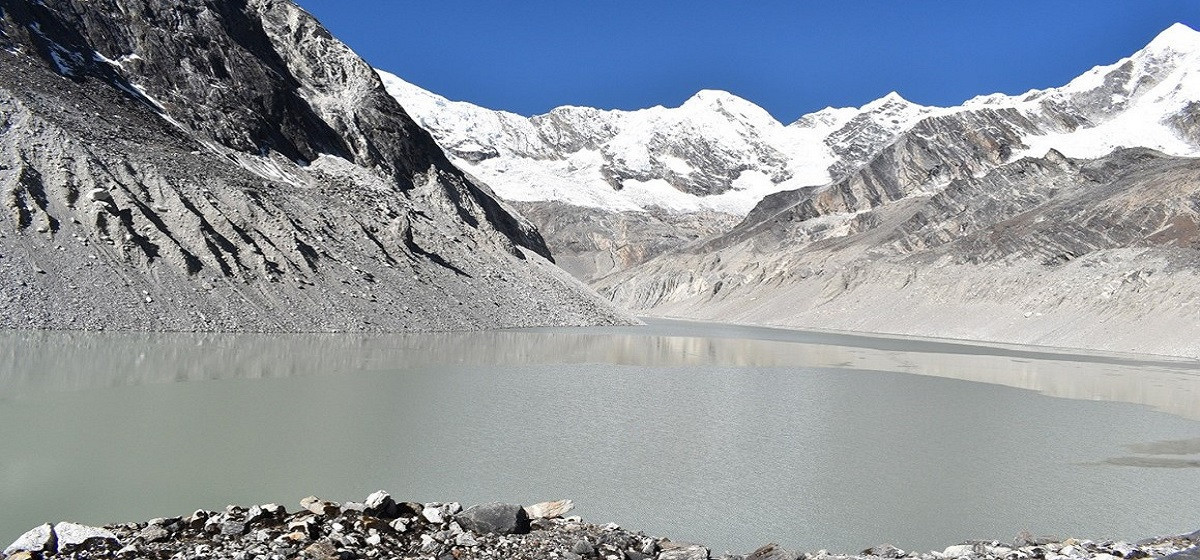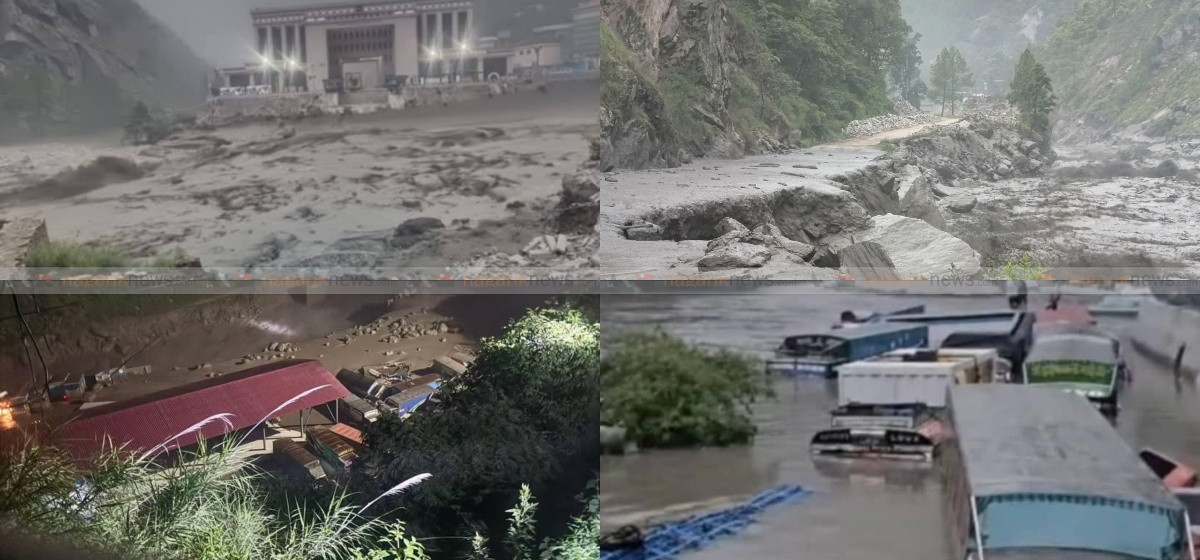KATHMANDU, July 1: Nepal is set to receive a grant worth nearly Rs 5 billion (USD 36.2 million) from the Green Climate Fund (GCF) to protect communities from glacial lake outburst floods (GLOFs).
This approval was made during the 42nd GCF Board Meeting currently being held in Papua New Guinea. The assistance will be channeled to Nepal through the United Nations Development Programme (UNDP), an accredited entity recognized by the GCF. Including additional co-financing worth nearly Rs 2 billion (USD 14 million) from other institutions, the project will amount to approximately Rs 7 billion.
The Government of Nepal, UNDP, and the Independent Power Producers’ Association of Nepal (IPPAN) will jointly invest in the project. Moreover, local governments and other relevant departments, agencies, and ministries included in the project area will contribute through parallel financing, according to the GCF.
Nepal Army drains 3 mile-high glacial lake

The project will work to reduce physical damage caused by glacial lake outbursts, safeguard livelihoods, and protect communities downstream from climate-induced floods. As the United Nations marks 2025 as the International Year of Glacier Preservation, Nepal’s acquisition of this high-priority project is significant.
The 7-year project will be led by Nepal’s Department of Hydrology and Meteorology in partnership with UNDP Nepal. It is expected to help protect 2.3 million people living in the at-risk Koshi and Gandaki river basins.
The project builds on a previous success in controlling the risk of a potential outburst from the Imja Lake. There, the water level was lowered by 3.4 meters through controlled drainage, averting a major disaster in one of Nepal’s most vulnerable Himalayan zones.
Under the current project, the water level of four high-risk glacial lakes will be reduced and early warning systems will be expanded. In addition, over 150 hectares of riverside areas will be stabilized by planting trees under nature-based solutions. Programs will also be run to boost disaster preparedness and climate adaptation capacity.
As the Himalayas continue to warm, UNDP Nepal has called this project is both “an urgent need and a forward-looking intervention.”
“This science-based project will be implemented under the leadership of the Government of Nepal and guided by global solidarity,” stated UNDP Nepal via its Facebook page on Tuesday.
A total of 19 project proposals worth nearly USD 1.3 billion have been tabled at the ongoing board meeting in Papua New Guinea. The GCF meeting, which started on Monday, will run through Thursday.





































